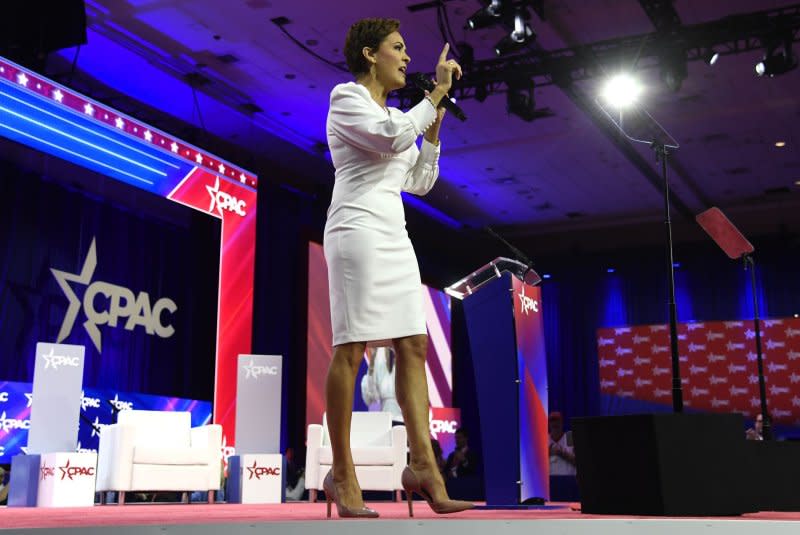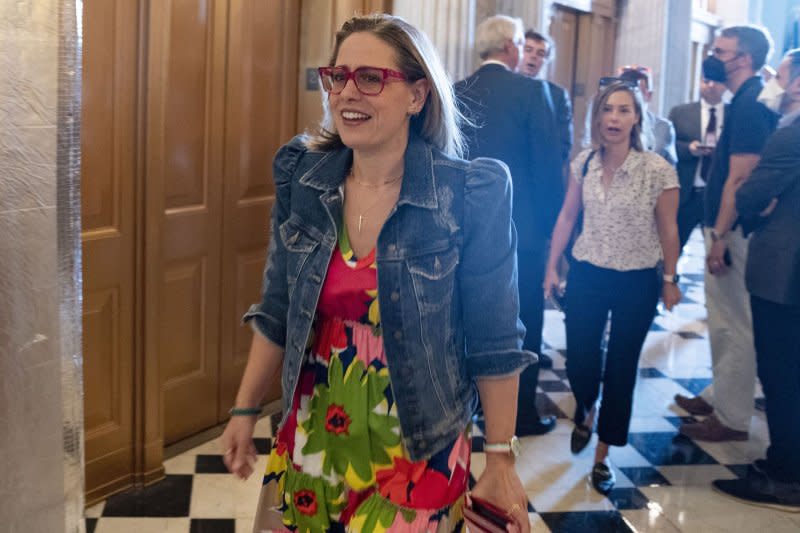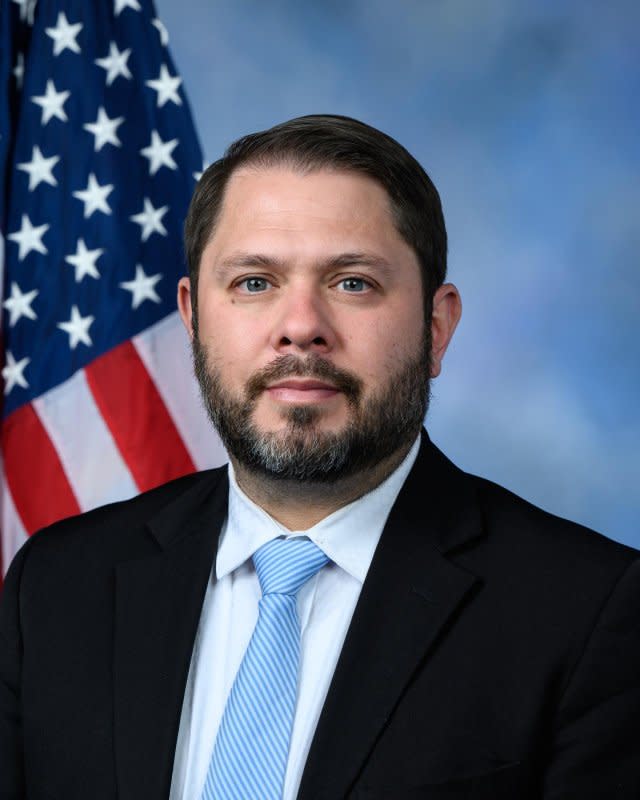Battleground Arizona: Senate race spotlights voters’ independence

April 12 (UPI) -- As Democrats and Republicans jostle for control of the U.S. Senate in the November elections, Arizona and its large population of independent voters is a particularly contentious battleground.
The choice to replace Sen. Kyrsten Sinema, the controversial Democrat turned independent who is not seeking re-election, is between Democratic Rep. Ruben Gallego, Republican Pinal County Sheriff Mark Lamb and Kari Lake, a strident supporter of former President Donald Trump who has denied the results of the 2020 election.
"Arizona is unique in the sense that independents are the largest number of voters, but you don't know how many closet Democrat or Republican voters there are," Matthew Dempsey, assistant professor at Arizona State University's school of politics and global studies, told UPI.
"Arizona is changing. It's not a solidly one-party state. Democrats win statewide offices."
Sinema's political evolution -- from a moderate Democrat, who often voted against her party on key legislation, to independent -- does not mirror the desires of her electorate, experts say. The switch baffled many observers, as it cost her Democratic support but did not bring in significant support from independents.

Change is coming in the U.S. Senate, with eight senators declining to run for re-election in November. Democrats hold a narrow majority, but five of the eight senators not running are Democrats. Then there is Sinema.
"Politics is nationalized nowadays, with all elections garnering much attention and heavy politicization," Fabian Neuner, assistant professor of politics at ASU, told UPI. "2024 will be a very important election year given that control of the presidency, Senate and House are all up for grabs. The election will be ubiquitous in the weeks and months leading up."

In Arizona, issues like inflation, abortion rights and immigration are at the top of voters' minds. The state supreme court's decision to revive an 1864 abortion ban is expected to be at the forefront of candidates' minds as they seek to fill the vacuum left by Sinema.
'Pull to the extremes'
"In 2017, I warned we were approaching a crossroads. Our democracy was weakened by government dysfunction and the constant pull to the extremes by both political parties," Sinema said in a video. "Americans still choose to retreat further to their partisan corners."
Sinema's vote has been one of the most scrutinized in the U.S. Senate in the last four years. She still caucuses with the Democrats but she has voted against the party on important issues.
She and Sen. Joe Manchin, D-W.Va., have been more likely to compromise with their Republican counterparts.
But Manchin's electorate is far different from Sinema's. Sam Workman, director of the West Virginia University Institute of Policy Research and Public Affairs, told UPI a West Virginia Democrat like Manchin is more accurately described as a pragmatist; always looking to negotiate and work across the aisle.
"He doesn't let the principles of the party or the narratives get in the way of making deals for public policy he deems best for the people of West Virginia," Workman said. Manchin has also announced he will not seek re-election.
"Arizona is different in that if Sinema was representing a state like Montana or West Virginia I would understand what I think she is doing a little bit more," he said. "Voters would be more forgiving."
The candidates
Gallego is a veteran of the Iraq War who was elected to the House in 2014. He represents the state's most populous district, which includes the Phoenix and Glendale areas.
Lake lost the 2022 race for governor to Gov. Katie Hobbs, a Democrat. Lake refused to concede and launched a failed legal challenge of the results. She is also known for pushing conspiracy theories about the 2020 presidential election being stolen from Trump.
Lamb has served as Pinal County Sheriff since 2017.
Dempsey said voters often cite inflation and abortion rights as the issues they are most concerned with, followed by border security.
"We're the only swing state on the border. Arizonans often want common-sense reform," he said. "They want it secured, but they don't necessarily want a wall. They support Dreamers and a path to citizenship legally. It's going to be a real test for Ruben and Kari Lake on whose message resonates."
Lake has largely echoed Trump with many of her campaign ideas, including support for his border wall. According to her campaign website, Lake also supports the immediate deportation of anyone caught crossing the border outside official ports of entry, withholding foreign aid to countries where migrants are coming from and disqualifying a majority of candidates for asylum.
Lamb's campaign has largely highlighted immigration and drug trafficking, specifically the prevalence of fentanyl, as his priority issues. In a campaign video on his website he says his son was jailed by his office with "issues stemming from fentanyl use."
His son Cooper Lamb, 22, and Cooper's infant child were later killed in a car crash on Dec. 16, 2022. Cooper Lamb's fiancee, Caroline Patten, died days later from injuries suffered in the crash.
Like Lake, Mark Lamb supports constructing a border wall. He also supports using military force to combat drug cartels.
Gallego introduced two bills that were included in the Senate border package supported by the Biden administration. First, the Buck Stops Here Act would create a mechanism for the U.S. Treasury Department to place restrictions on entities that are involved in trafficking fentanyl.
Second was a proposed reform to the shelter and services program that was created last year. Reforms would include allowing data sharing between the Border Patrol and local governments, reauthorization for $1.5 billion in funding per year and a first-responder grant program to help communities operate centers that deal with migrant surges.
"Ultimately, we know both in Arizona and around the nation that Donald Trump and Trump-like candidates have not won the independent vote since 2016," Dempsey said. For me, the big question for the Arizona races this cycle is how will the independent vote break, but also what role will the third party play. I suspect it will get a larger chunk of the vote than in the past couple cycles."


